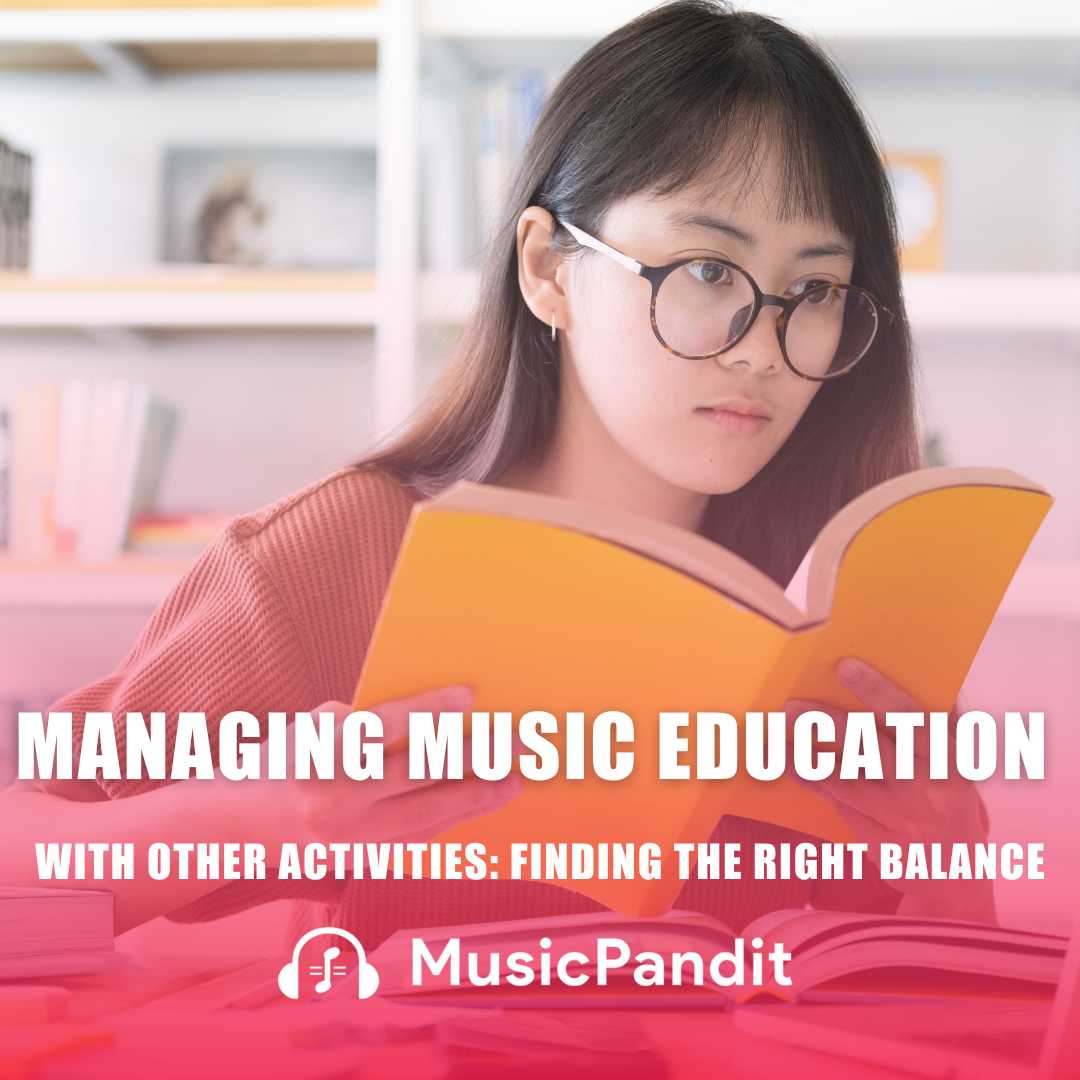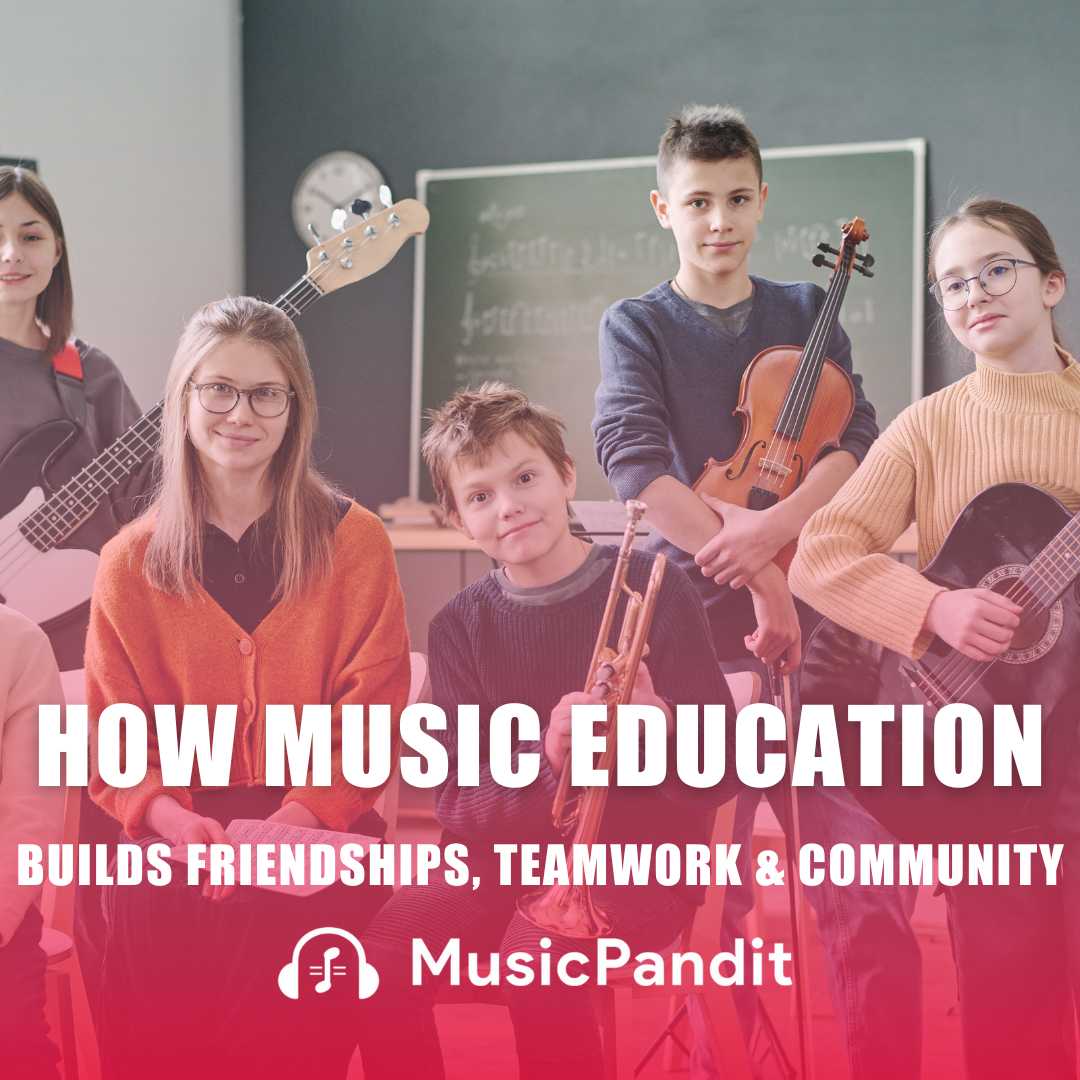Music education offers more than just the acquisition of musical skills; it serves as a powerful tool for social development, fostering friendships, and building communities. For parents considering music programs for their children, understanding these social benefits can provide valuable insights into the holistic growth that music education promotes.
Also read: Tips for Managing Your Child’s Music and School
The Role of Ensemble Participation in Social Development
Participating in musical ensembles—such as bands, orchestras, or choirs—provides students with opportunities to collaborate and connect with peers. This collaborative environment nurtures essential social skills that extend beyond the music room.
Teamwork and Collaboration
In an ensemble, each member contributes to a collective performance, emphasizing the importance of teamwork. Students learn to listen attentively to one another, synchronize their parts, and work towards a common goal. This cooperative effort teaches them to prioritize group success over individual recognition, fostering a sense of unity and shared purpose.
Communication Skills
Effective communication is crucial in ensemble settings. Musicians must convey musical ideas and intentions through both verbal discussions and non-verbal cues, such as eye contact and body language. This practice enhances their ability to express themselves clearly and interpret others’ expressions, leading to improved interpersonal communication skills.
Discipline and Responsibility
Regular rehearsals and performances require students to manage their time effectively, practice consistently, and come prepared. This instills a sense of discipline and personal responsibility, as each member’s commitment directly impacts the ensemble’s overall performance.
Building Friendships Through Shared Musical Experiences
Music education creates a platform for students to form meaningful relationships based on shared interests and experiences.
Sense of Belonging
Joining an ensemble provides a sense of belonging, as students become part of a community with common goals and passions. This inclusive environment helps them feel valued and connected, which is especially beneficial during formative years.
Peer Support and Mentorship
Within ensembles, students often support each other by offering constructive feedback and encouragement. Advanced students may mentor beginners, fostering a culture of peer learning and mutual respect. These interactions build trust and camaraderie among members.
Lifelong Friendships
The bonds formed through making music together can lead to lasting friendships. The shared challenges and triumphs of rehearsals and performances create strong connections that often extend beyond the musical setting.
Music as a Tool for Community Building
Beyond individual and group benefits, music education plays a significant role in strengthening communities.
Cultural Awareness and Inclusion
Engaging with diverse musical genres exposes students to various cultures and traditions, promoting inclusivity and respect for differences. This cultural exchange enriches the community by fostering understanding and appreciation among its members.
Community Engagement
Ensemble performances often serve as community events, bringing people together to celebrate and enjoy music. These gatherings enhance social cohesion and provide a platform for students to contribute positively to their communities.
Emotional Well-being
Participating in group music-making has been shown to release endorphins, contributing to emotional well-being. The joy and satisfaction derived from creating music with others can alleviate stress and promote a positive outlook, benefiting both individuals and the broader community.
Practical Benefits of Ensemble Participation
In addition to social advantages, ensemble participation offers practical benefits that support students’ overall development.
Enhanced Musical Skills
Playing in an ensemble helps students develop critical musical skills such as balance, intonation, rhythm, and performance etiquette. These skills are honed through continuous practice and real-time feedback from peers and conductors.
Academic Improvement
Studies have indicated that music education can enhance cognitive abilities, leading to better academic performance. Skills such as critical thinking, problem-solving, and memory are often strengthened through musical training.
Confidence Building
Performing in front of an audience helps students overcome stage fright and build self-confidence. The experience of presenting their hard work publicly reinforces their self-esteem and encourages them to take on new challenges.
Encouraging Your Child to Participate in Music Ensembles
As a parent, supporting your child’s involvement in music ensembles can have a profound impact on their social and personal development.
Choosing the Right Ensemble
Consider your child’s interests and skill level when selecting an ensemble. Whether it’s a school band, community choir, or youth orchestra, finding the right fit will enhance their enjoyment and commitment.
Providing Support and Encouragement
Attend your child’s performances, encourage regular practice, and express interest in their musical journey. Your support reinforces the value of their efforts and motivates them to continue growing.
Balancing Commitments
Help your child manage their time to balance musical activities with academic responsibilities and leisure. Effective time management ensures they can fully benefit from their ensemble participation without feeling overwhelmed.
Conclusion
Music education, particularly through ensemble participation, offers invaluable social benefits. It fosters teamwork, communication, discipline, and cultural awareness, while also building friendships and strengthening communities. By encouraging your child’s involvement in music ensembles, you’re not only nurturing their musical talents but also supporting their holistic development as socially adept and community-minded individuals.













